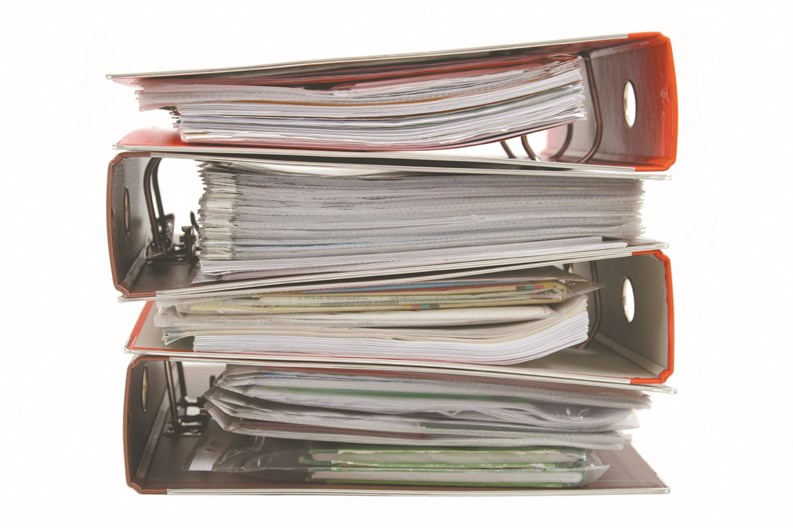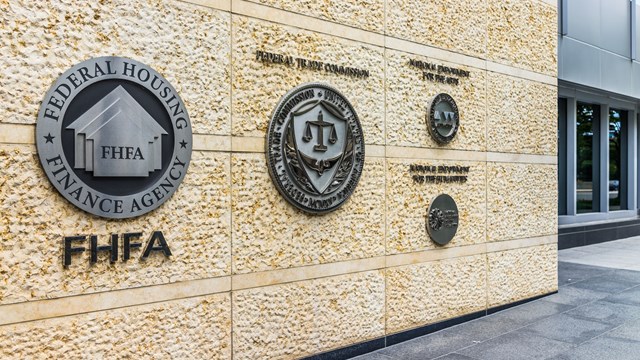Remember that thick stack of documents you received when you bought your condo or co-op? If you're like most people, they're probably sitting in a drawer or in the back of your filing cabinet, communing with the dust bunnies, largely forgotten.
While quarantining all those densely-worded legal papers with the rest of the documents and slips that came along with buying the new place is tempting, it's time to excavate them, shed the dust, and reacquaint yourself, because those files are the first and last word when it comes to how your building is governed. They map out the responsibilities and powers of the board, dictate how finances are to be handled, and codify the rules and regulations to which all residents must adhere.
Most people—even board members—don't read their building or HOA's governing documents unless they have a specific question to answer, and residents are notoriously unfamiliar with them. This ignorance is the basis for a lot of misunderstanding and confusion between building administrators and their residents—and the first step to preventing those sorts of problems is to learn what exactly the documents are and why you and your building community need them.
Different Beasts
According to Jeremy A. Gibson, principal business attorney of the real estate law firm Jeremy A. Gibson & Associates with offices in Chicago and Deerfield, Illinois. It all starts with the difference between condos and co-ops. In a condominium (by far the more common of the two in the Chicagoland area), each unit owner actually owns their apartment; it's their real property.
So the documents that condo owners receive govern the common areas, such as the hallways, the elevators, the lobby, the parking facilities, and any other shared spaces throughout the building,
“When you buy a condominium, you will receive a declaration and bylaws,” says Gibson. “The declaration will be recorded with the recorder of deeds, while the bylaws, which govern the operation of the board, will typically stay within the building.”
A co-op is completely different, Gibson says. Rather than owning real property, “In a co-op, you have an interest in the building, and while you have the right to occupy the space, you don’t actually own the space. That’s the principal difference.”
Chicago and its surrounding communities only has a handful of co-ops—the rest of multifamily, non-rental housing units are condominiums—but if you happen to purchase one of the city's rare co-ops, instead of the declaration you’ll receive what's known as a proprietary lease.
“The way a co-op works is that a cooperative corporation owns the land and all the apartments,” says John C. Haas, a real estate lawyer in private practice in Mount Prospect, Illinois. “Each co-op shareholder owns stock in the company that owns the building and the land, and they’re part owners of the co-op association.”
The co-op association leases out each of the co-op apartments to the people who will be living there—who happen to be the same people who own the shares of the co-op. Co-op shareholdership feels a lot like outright ownership. You can will your unit to your heirs or designated beneficiaries, and you have the right to sell your apartment—as long as the building approves of the people purchasing it. But technically, says Haas, you’re leasing it. The proprietary lease guarantees that the occupant of the apartment has the right to live in the apartment, but beyond that, the co-op board has a great deal of say in how the building is run and how units are managed.
Signed, Sealed, Delivered
Whether you buy a co-op or a condo, the building is required to give you all the relevant documents as soon as you buy the apartment—and you can also request to look over the papers before you decide to purchase.
In fact, says Angela Falzone, a property consultant with Association Advocates, Inc., a Chicago-based firm offering consultation, management and advocacy services for residential board members and homeowners, it’s suggested that you and your real estate attorney look through all the documents before closing, so you can make sure your new home is a good investment, and doesn't come with any rules or policies that might be deal-breakers.
In addition to the declaration or proprietary lease and bylaws, those documents will include, but are not limited to: budgets, current financials, minutes of resident meetings within a certain time frame (generally two years), and the house rules and regulations for the building. In newly constructed condos, a property report is generally available for review as well.
“Understanding the rules and regulations of a condo building is so important,” says Falzone, “as things may be included in rules that were not dictated in the declaration and bylaws, such as non-smoking areas, limits on noise, areas restricted for walking dogs and other pet rules.”
People with very specific housing needs should take a very close look at those documents, adds Gibson—again, being on the lookout for potential deal-breakers.
For example, say Gibson, if you work out of your home or have a home-based business, you’ll want to make sure there’s nothing that will restrict you from being able to run that business. The building may have rules limiting the number of deliveries you can receive, or the number of visitors that can come in and out on a daily basis, making working from home difficult or impossible in some professions.
If you’re planning on renting out your apartment—or even a room in your apartment—the pros agree that the legal documents should outline the rules for this. There are many buildings that don’t allow rentals at all, so if you plan to take on a tenant/roommate, or sublet your unit for six months of the year, you need to make sure it’s allowed before you make your purchase.
In the documents, you’ll also be able to see the building’s financial reserves. This is incredibly important, since low reserves could mean a special assessment in the near future should the roof need major repairs or the windows all be due for replacement.
Recent changes to FHA loan requirements also demand more disclosure and clarity when it comes to reserve funds—so the more information you have, the better your chances for meeting mortgage qualifications as well.
Keeping Current
While all these documents are very important and should be kept close track of, it's not the end of the world if yours got thrown out during your 2009 spring cleaning. You can always get replacement copies. The easiest way to obtain duplicates is to make a request in writing to your association management. You’ll typically be charged a fee—usually no more than $25 for the photocopying of the bylaws, says Brian E. Alexander, a real estate attorney and partner with Alexander & Associates in Chicago.
According to Falzone, if the documents are properly recorded, you can also get a copy of your condo declaration from your county recorder's office using the name and address of the property. A recorded document of this nature is a restriction on the title of the unit, and the recorded number of the document will show up in a title search.
Like everything else, a building or HOA’s documents should be revisited often, and altered as needed to keep up with the times and the demands of the residents. Some buildings and communities opt to disallow pets, but will allow existing pets to be grandfathered in under the new rule. A younger-trending building may want to revisit its rules about quiet hours. A newly-installed or updated amenity—such as a pool, for example—will require new regulations governing its use and upkeep.
According to Falzone, if the board decides to change its bylaws, they're usually required—by the community's bylaws themselves—to take a vote during an official meeting. The meeting can be a regularly scheduled gathering such as an annual residents' meeting, or a special meeting created expressly for the purpose of the vote. Residents are usually required be alerted via a letter, posting or e-mail about the meeting within a set number of days in advance, but typically, only the board members will actually vote on the change to the documents.
If the board decides to change its declaration, this is a more formal event, and they’ll need to send a copy of the proposed amendment to all the residents, Falzone says, then hold a meeting to discuss and explain the changes, while soliciting approval from a majority of owners. It can be a very long process.
“Amendments can take months to complete,” says Falzone, “because owners reluctant to approve may need convincing, and politicking may be needed to get the amendment through. I have one that I’ve been working on for more than a year, and I still do not have the required signatures to get it passed and recorded.”
If an incoming, newly-elected board discovers that their building’s governing documents are somehow incomplete, were poorly drawn-up to start with, or have been improperly altered or amended over the years, getting them up-to-date could still be a lengthy, expensive process.
“It’s not uncommon for this to happen,” says Alexander. “I’ve actually dealt with associations that never put together bylaws—they just operated informally.”
That’s a rare and risky move, however. Informal operations where nothing is set in stone or put in writing can lead to nasty legal battles, so most attorneys recommend creating legitimate, written bylaws so there’s no question about anything should problems arise.
If a community's documents be are missing or inconsistent with state or federal laws, says Falzone, the Illinois Condominium Property Act will prevail. But it’s much easier simply to use the ICPA to help boards draw up their own bylaws that work for the state, the board, the building and all the residents.
Before it comes to that however, Hass recommends that condo boards hire the assistance of an experienced real estate attorney who understands the laws at the federal, state, and municipal level.
“These are extremely technical documents,” Hass says. “I’d never recommend that a condo or a co-op board try to amend their documents without the assistance of legal counsel. Find someone specializing in condo or co-op law.”
Danielle Braff is a freelance writer living in Chicago and a frequent contributor to The Chicagoland Cooperator.







Comments
Leave a Comment